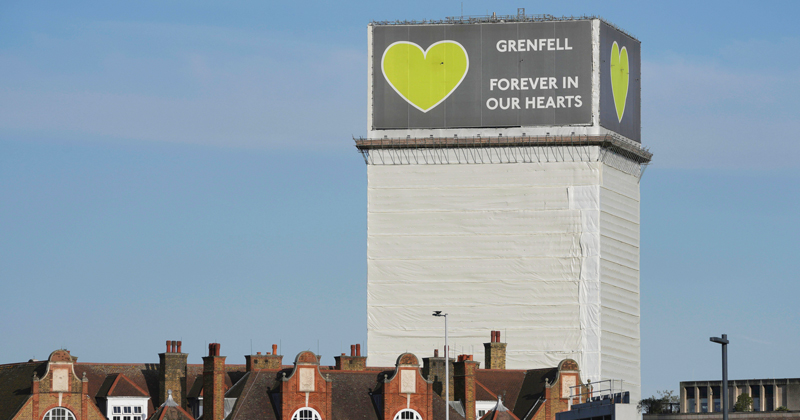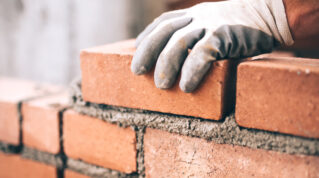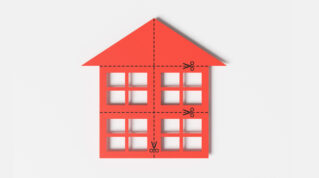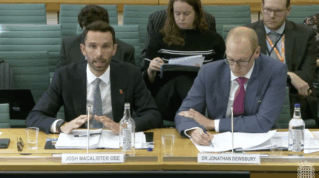Potential bans on building companies involved in the Grenfell Tower disaster could impact “every” school project, the government’s property arm has warned.
Ministers are considering whether to use new powers to bar companies linked to the 2017 fire, in which 70 people died, from bidding for public contracts.
But LocatED, the Department for Education’s school construction company, fears the move could hit the sector’s “material supply choices” if some of the bigger companies, such as Saint-Gobain Construction Products UK and Kingspan Insulation are barred.
Experts also believe the changes could expose schools – many of which lack construction “expertise” – to a “whole host of new responsibilities” and “critical legal decisions” when procuring.
DfE’s ‘concerning’ emails
In February, the government announced intentions to investigate seven companies in relation to the Grenfell fire, using “new powers in the procurement act” to “establish whether the organisations have engaged in professional misconduct”.
If it is found that they did, they would be added to “a published and centrally managed debarment list”.
Georgia Gould, parliamentary secretary for the Cabinet Office, said this list “must be taken into account” by contracting authorities, including schools, in “awarding new contracts and undertaking new procurements”.
But speaking at a recent event, Will Mumford, a LocatED director, said: “This is going to sound a bit dramatic, but I’ve seen a number of, to me, quite concerning emails from within the DfE talking about the firms associated with the Grenfell fire and the fact that they’re going to be banned from being able to be procured on public frameworks and for public works.
“If you start banning the likes of Kingspan… and Saint-Gobain, you have really impacted on your material supply choices.”
The DfE declined to comment because of the ongoing investigation.
Saint-Gobain Construction Products is being investigated “in relation to the actions of Celotex Limited”, which is no longer trading. Saint-Gobain’s eight businesses supply internal wall systems, external wall insulation and acoustic ceilings among other things.
‘Every single project’
Mumford said the likes of British Gypsum, Gyproc and Ecophon – all of which are part of Saint-Gobain Construction Products – were used “in every single school project”.
British Gypsum is listed as a supplier to one of the DfE’s building framework contractors, McLaren Construction.
A post on Saint-Gobain’s website said its Weber flooring products “are used extensively throughout many” school projects, with “over 300,000m² of Weberfloor… successfully installed in educational, healthcare and commercial sectors”.
Meanwhile, Kingspan Insulation provides insulation boards for floors, roofs and walls for retrofit school projects.
“Trying to find alternate products will genuinely be quite difficult,” Mumford said.
“We don’t know exactly where that’s going to land, but we just need to be mindful.”
Debarments can be issued on mandatory – in the “most serious, high-risk scenarios” – and discretionary grounds. They can last up to five years.
Mandatory exclusions – banning schools from allowing suppliers to take part in procurements – are enforced if companies have been convicted, have breached competition law or have been deemed a national security threat.
Discretionary bans – giving schools the choice to allow suppliers to take part in projects – “mostly do not require a conviction” but are given in “situations which may pose unacceptable risks”.
Onus ‘on schools’ to check
In such circumstances, lawyer Dr Rebecca Rees said the “contracting authority needs to look at the relevant information as to why the firm was put on the debarment list and should only proceed with that supplier if there’s good reason to do so”.
She said it would put “significant onus” on schools to “check their supply chain is clean”.
An “unintended consequence” is that the restrictions could extend to “connected persons”, such as directors, sub-contractors and parent companies.
Lucia Glynn, an academy consultant, said many trust boards “wouldn’t have the knowledge of the construction industry, so you’re asking people without the expertise to make those really critical legal decisions”.

A Saint-Gobain Construction Products spokesperson said the company would “continue to cooperate fully and openly with all official investigations”.
Celotex, which provided Grenfell Tower’s “principal insulation product” – later deemed “combustible” and not suitable for use – had not traded since 2015.
The spokesperson said government testing showed the insulation could be used in cladding systems – different to the one used in Grenfell – that “met the relevant standards”.
Businesses in Saint-Gobain Construction Products UK “had no connection with the refurbishment of Grenfell Tower”, they added.
Kingspan was accused of “knowingly” creating “a false market in insulation for use on buildings over 18 metres”.
It said earlier this year that the public inquiry “explains clearly and unambiguously that the type of insulation… was immaterial” to the fire.
















Your thoughts